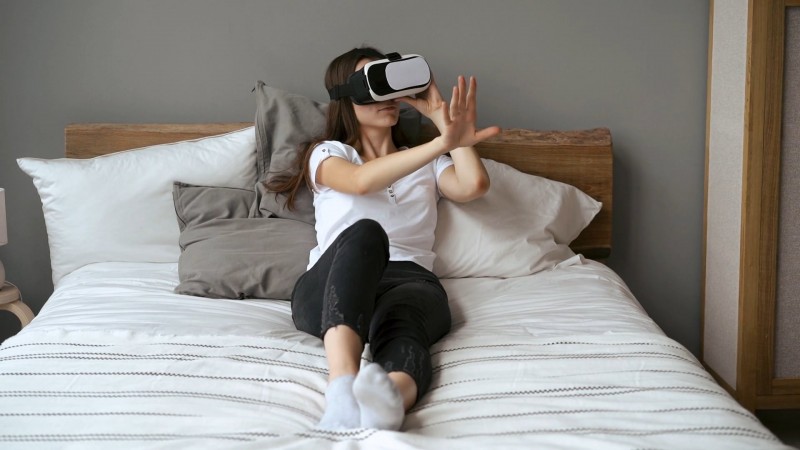
Virtual Reality (VR) has transformed various industries, and one of its most promising applications is in the field of mental health. Virtual Reality Therapy, also known as VR Therapy or Virtual Reality Exposure Therapy (VRET), is an innovative approach that harnesses the power of immersive technology to treat mental health disorders. This article explores the efficacy and potential of Virtual Reality Therapy in treating various mental health conditions, highlighting its advantages, success stories, ethical considerations, and future possibilities.
Mental health disorders affect millions worldwide, and traditional therapeutic methods have shown promising results in treating such conditions. However, some disorders, like anxiety and phobias, may require exposure-based treatments, which can be challenging and potentially distressing for patients. This is where Virtual Reality Therapy comes into play, offering a safe and controlled environment for exposure-based treatments.
Understanding Virtual Reality Therapy
Virtual Reality Therapy involves using VR headsets to simulate realistic environments and situations that trigger specific mental health conditions. The therapist can guide patients through these scenarios and gradually expose them to their fears or anxieties. This controlled exposure enables individuals to confront and manage their emotional responses, ultimately leading to desensitization.
The Advantages of Virtual Reality Therapy
Immersive Environment for Treatment
Unlike traditional therapy settings, Virtual Reality Therapy provides an immersive and interactive environment. Patients feel as though they are present in the situations they fear, allowing for a deeper emotional connection and realistic experiences.
Safe and Controlled Exposure
VR Therapy ensures that patients are exposed to their fears in a controlled and safe manner. Therapists can customize the intensity of exposure to suit each individual's needs, preventing overwhelming experiences.
Personalized and Customizable Treatment
Each patient is unique, and Virtual Reality Therapy allows for personalized treatment plans. Therapists can tailor scenarios to address specific triggers and concerns, optimizing the chances of successful outcomes.
Virtual Reality Therapy for Anxiety Disorders
Social Anxiety Disorder
Social Anxiety Disorder can severely impact an individual's ability to engage in social situations. VR Therapy can recreate social scenarios, such as parties or public speaking events, where patients can practice and develop coping strategies.
Post-Traumatic Stress Disorder (PTSD)
PTSD often stems from traumatic experiences, and VR Therapy can recreate these events in a controlled environment. This enables patients to process their emotions and reduce the emotional burden associated with such memories.
Virtual Reality Therapy for Phobias
Fear of Heights
Virtual Reality Therapy can expose individuals with acrophobia to heights in a safe manner. Gradual exposure can lead to reduced anxiety and increased confidence.
Fear of Flying
Those with a fear of flying can benefit from VR Therapy, where they can experience virtual flights and work on their anxieties. This can lead to a better quality of life for individuals who need to travel but are held back by their phobias.
Virtual Reality Therapy for Depression
Creating Positive Environments
VR Therapy can help individuals with depression by immersing them in positive and uplifting environments. This can positively influence mood and outlook.
Enhancing Cognitive Behavioral Therapy (CBT)
CBT is a widely-used therapeutic approach for depression. When combined with VR Therapy, patients can practice coping skills and face negative thought patterns in a realistic setting.
Ethical Considerations in Virtual Reality Therapy
Informed Consent
As with any therapeutic treatment, obtaining informed consent is crucial. Patients must understand the nature of VR Therapy and give consent before the treatment begins.
Data Privacy and Security
VR Therapy involves the use of technology and may gather personal data. Therapists must ensure strict data privacy and security measures to protect patients' sensitive information.
Future Potential and Limitations of Virtual Reality Therapy
Expanding Treatment Options
The potential of VR Therapy goes beyond anxiety and phobias. In the future, it may be used to treat a wide range of mental health conditions, such as eating disorders, addiction, and more.
Accessibility and Affordability
As technology advances, VR headsets may become more accessible and affordable, making VR Therapy a viable option for more individuals in need.
Real-Life Success Stories
John's Journey to Overcoming Social Anxiety
John's experience with VR Therapy, where he gradually faced his social fears, led to significant improvements in his social interactions and overall confidence.
Mary's Triumph Over Her Fear of Flying
Mary's fear of flying had limited her career opportunities. VR Therapy helped her confront her fears, and she eventually boarded a plane without debilitating anxiety.
Virtual Reality Therapy in the Medical Field
Pain Management
VR Therapy has been explored for managing pain, providing distraction and relaxation during medical procedures and chronic pain treatment.
Physical Rehabilitation
In physical therapy, VR can motivate patients to engage in exercises and rehabilitation routines, aiding in their recovery process.
The Role of Virtual Reality Therapy in Stress Reduction
VR Therapy can offer stress-relief experiences, promoting relaxation and mental well-being.
Virtual Reality Therapy in Education and Training
VR's potential extends to education and training, enabling immersive learning experiences for students and professionals.
The Future of Virtual Reality Therapy: Innovations and Developments
The future of VR Therapy is promising, with ongoing research and advancements in technology that will continue to enhance its efficacy.
Virtual Reality Therapy is a revolutionary approach that has transformed mental health treatment. By providing immersive and controlled exposure, VR Therapy offers a safe and effective way to address various mental health disorders. As technology continues to advance, the potential for VR Therapy to positively impact more lives is limitless.
Creating Unforgettable Memories: The Magic of Amazing Wedding Events
Nanotechnology Applications: Tiny Tech with Big Potential
The Impact of "1984" by George Orwell on Modern Surveillance Culture